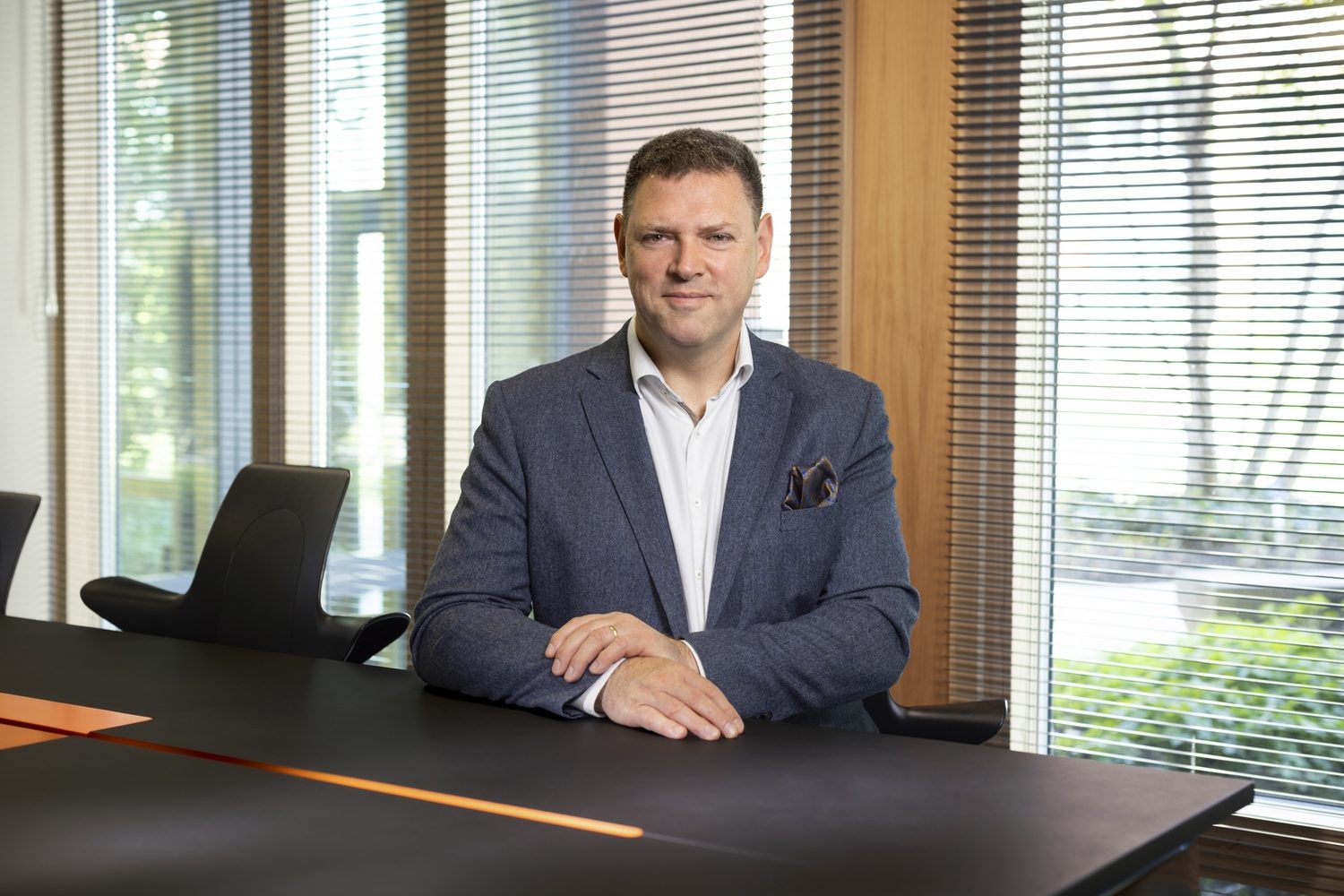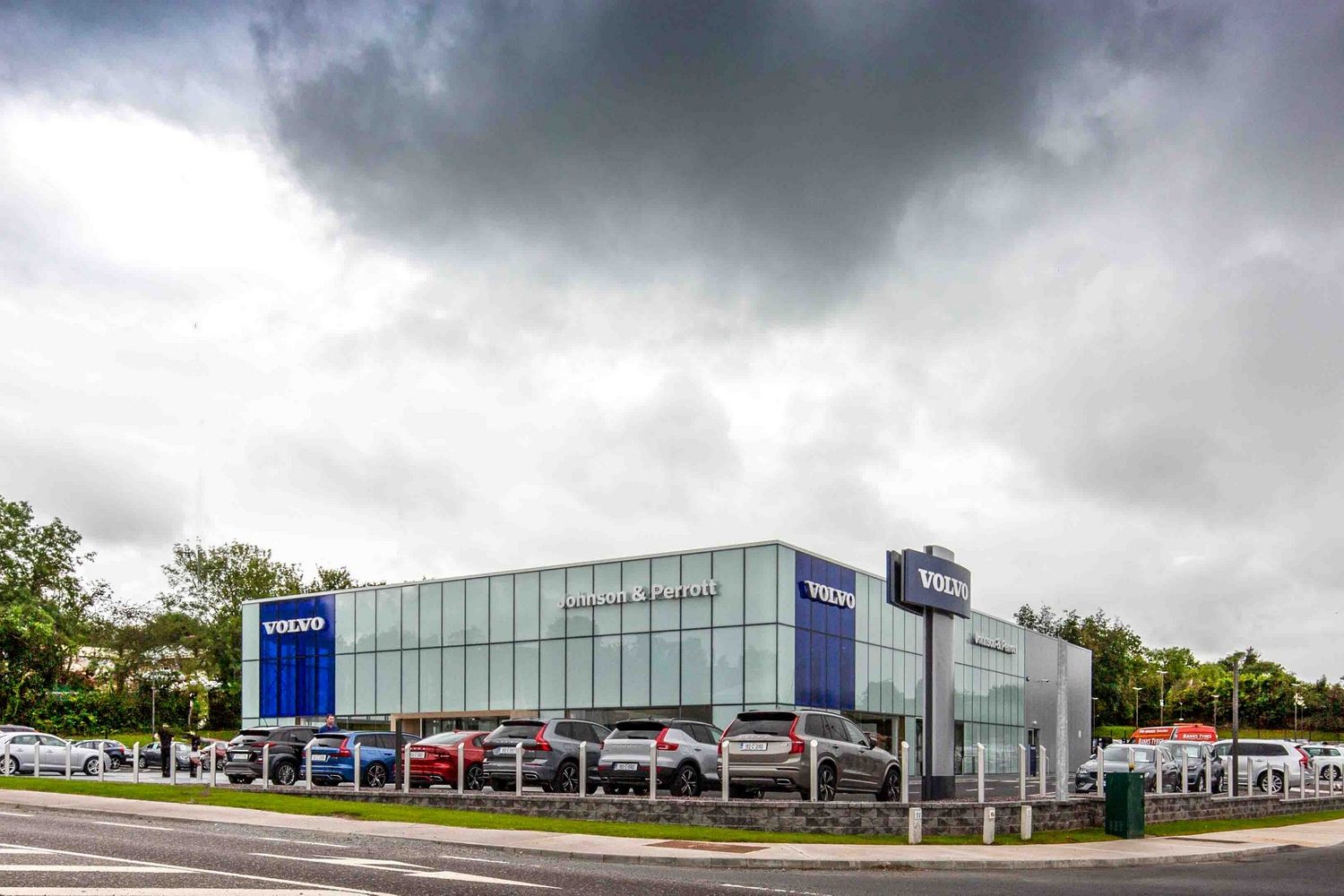Back on 20 March 2021, Volvo hit the headlines, committing to becoming an all-electric brand by 2030. Since then, it has revealed the EX90 seven-seat SUV, the EX30 crossover has hit Irish roads and the company has separated combustion-engined and electric versions of the XC40 and C40 SUVs by re-badging the latter the EX40 and EC40.
To get some insight into the brand’s future, from the influence that Chinese firm Geely has over the company, to Volvo's positioning and market share, we caught up with Alan Cowley, Managing Director of Volvo Cars Ireland.
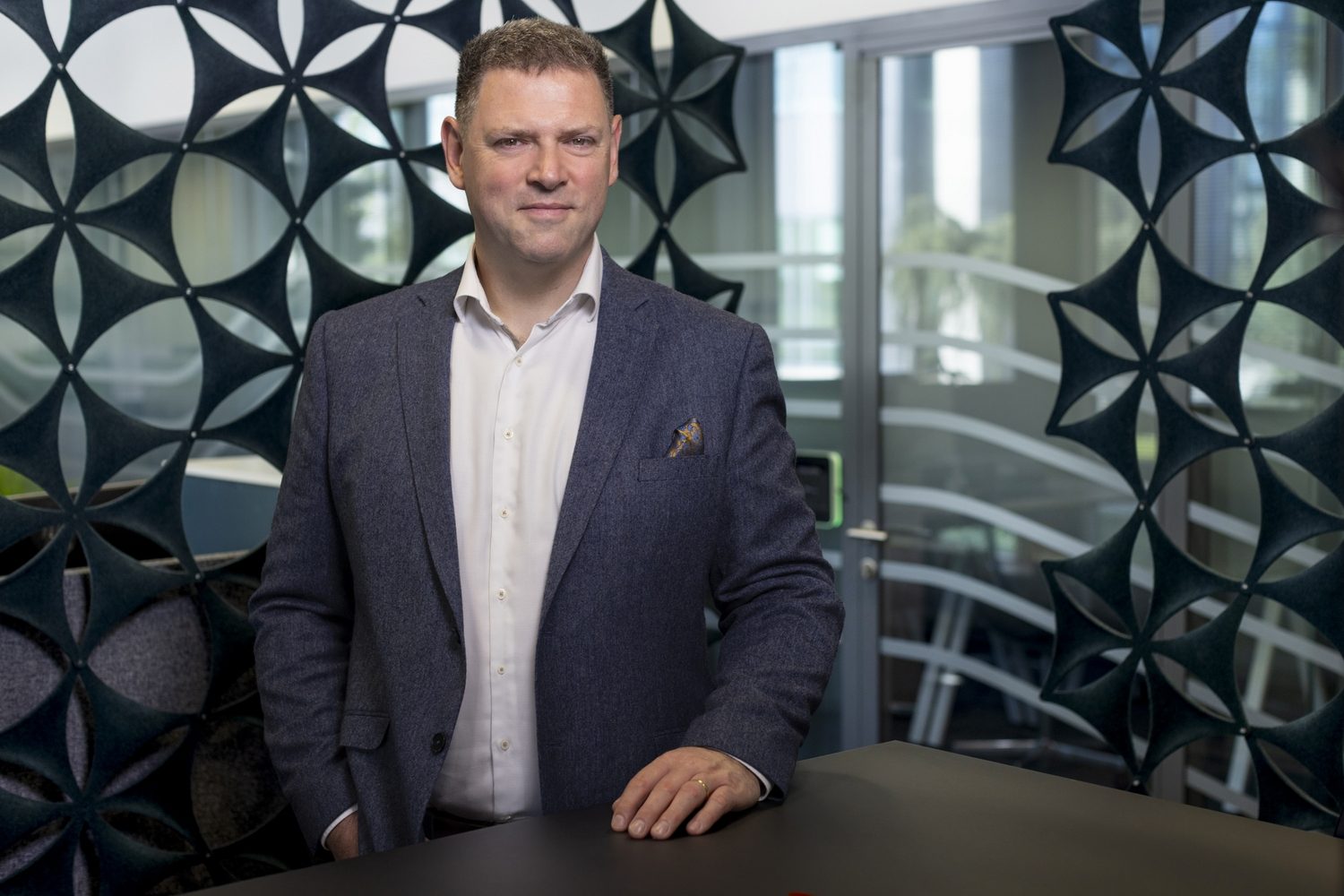
Q: You're a year into the job now, so you will have a good idea of where Volvo is in comparison with rival companies. How do you see Volvo as being different?
A: What I always see with Volvo is that there's a genuine authenticity; we're Swedish through and through. What I mean by that is the way Volvo treats people, treats employees, and the way it truly sees value in life is very sincere.
Safety is Volvo's DNA, it truly is, and it came from a very genuine place back in the day, when it was originally stated as being our intent. It's not a tagline, it's something that we apply every time we design a new car, we try and be safer than we were previously. Everybody knows the seatbelt story [the three-point safety belt was created by Volvo engineer Nils Bohlin, while the patent was made free for the market to use] but it's a very sincere story. It just epitomises everything that Volvo tries to do on an ongoing basis. And that differentiates us, the sincerity.
Q: How do you marry that sincerity with Volvo's position within the Geely conglomerate? How do those two things exist in parallel?
A: Every business has investors and that's effectively what Geely are to us. Our management team is still in Sweden and lives a very Swedish existence. But our investors [Geely] provided us with the autonomy to become a brand of our own. They don't get in the way of our day-to-day decision making. We have other investors, and we're listed on the stock exchange, so our Chinese investors are not our only investors.
Q: Looking at the Irish market, it's in an interesting place right now for people trying to sell EVs to meet our country's climate goals. What are the challenges that Volvo face, and what about the challenges facing buyers?
A: I think there's a horrendous amount of noise in the marketplace right now. People have access to lots of information, but it's difficult to cut through to make informed decision making.
I'll give you an example. A gentleman was on my driveway yesterday, and we were talking about installing an electric lawnmower for my house. He spotted two Volvos on the drive, so I explained that I work for Volvo, and he said, "tell me about electric". I asked what he meant, and he said that he was going to buy an electric car, but then read all these things and got confused. And because he got confused, he stopped and didn't know what to do. This is such a consistent story I hear over and over again.
Then we got into talking about what he does - selling machinery that used to be petrol-based but are now battery-based. So, I asked "how do you feel about that?", and he said it's a no-brainer: batteries are brilliant, there's no noise, they're a pleasure to work on, no vibration, there's so many great things about battery power. So, I said "how do you translate that to cars?" And he said it's different because residual values are plummeting.
From there I said that Volvo isn't a brand that tries to sell to everybody. We aspire to a 2 per cent market share, but we want our 2 per cent to understand that we can offer a car that's more comfortable, more friendly towards the environment, and in a lot of ways is more practical because you can charge it at home rather than having to go to a petrol station.
In Ireland there's a higher percentage of driveways than in any other country in Europe. So, charging at home is fundamentally very available here. Add in the notion that we're a small country, and most batteries now, even a standard range, never mind a long range, offer you the ability to get from Dublin to Cork, if not return. And actually, the infrastructure isn't that bad on the motorways. Add all those together and suddenly the thing [EVs] start to make sense.
As for residuals, you've got to consider the car you’re buying today and its place in the near future. Will that car, if you choose petrol power or battery power, be the right car in four years’ time? That's the big question. What will the market be doing in four years’ time? Making a non-decision by saying "I'll just buy diesel just in case", that's as dangerous as making an informed decision about buying an electric car.
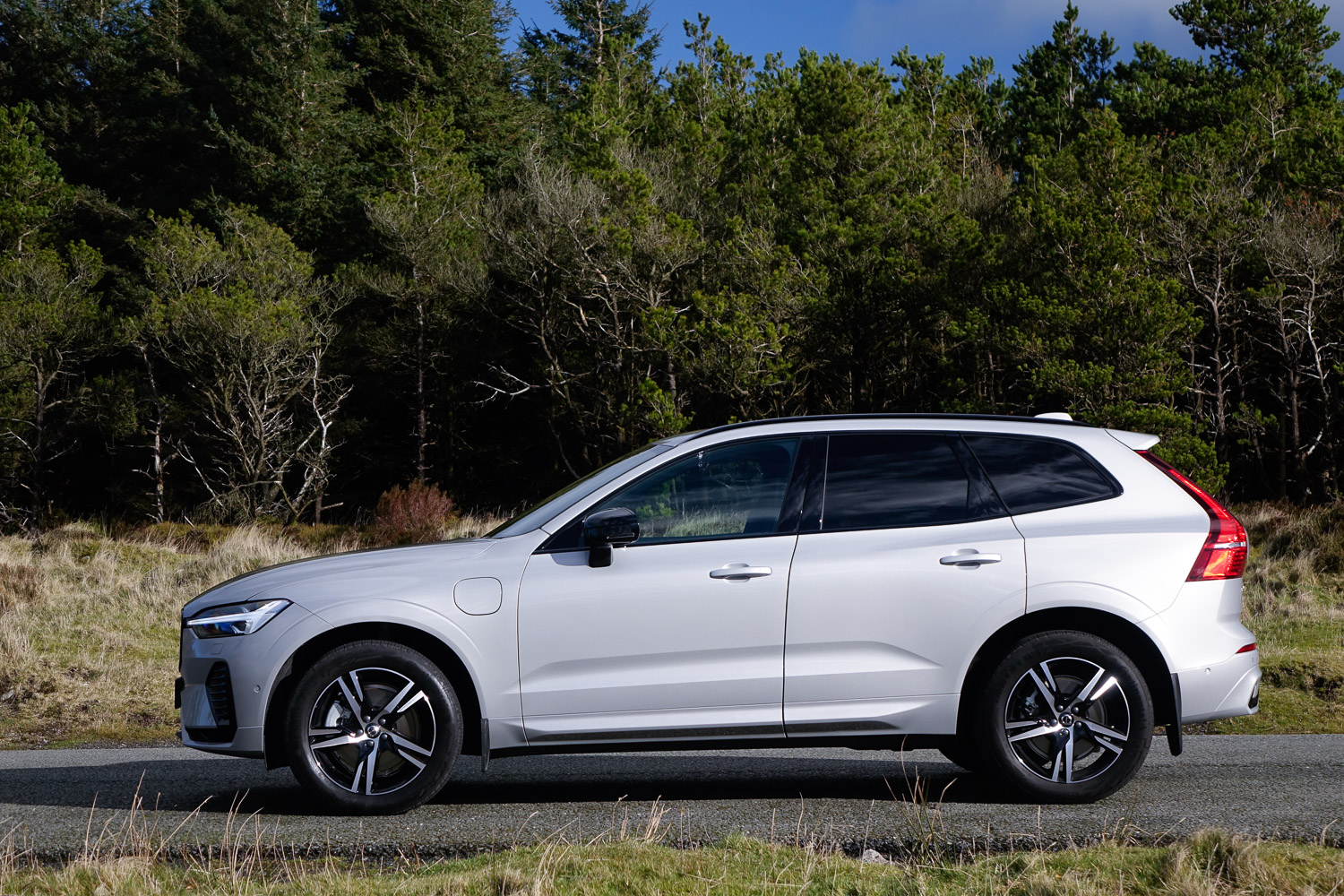
Q: While Volvo has announced that it's going fully electric, it doesn't just sell electric cars now.
A: We don't. For a lot of people transition is important, and for that reason we offer plug-in hybrids (PHEVs). It's an interesting topic, because we know from studying the behaviour of PHEV drivers that 60 per cent of their driving is done in pure electric. And when the batteries come back after four, five or six years, they're still 95 per cent intact. So, they have longevity as a primary source of power. That's something that people aren't talking about right now, that the batteries can get quite old and have great longevity.
The PHEV is a great solution, it means that if you're in Dublin, for that occasional trip to Cork or up to Belfast, it gives you that peace of mind that you can do that. But primarily it's about the short day-to-day trip, the 30-40 kilometres to work or whatever, like most people do.
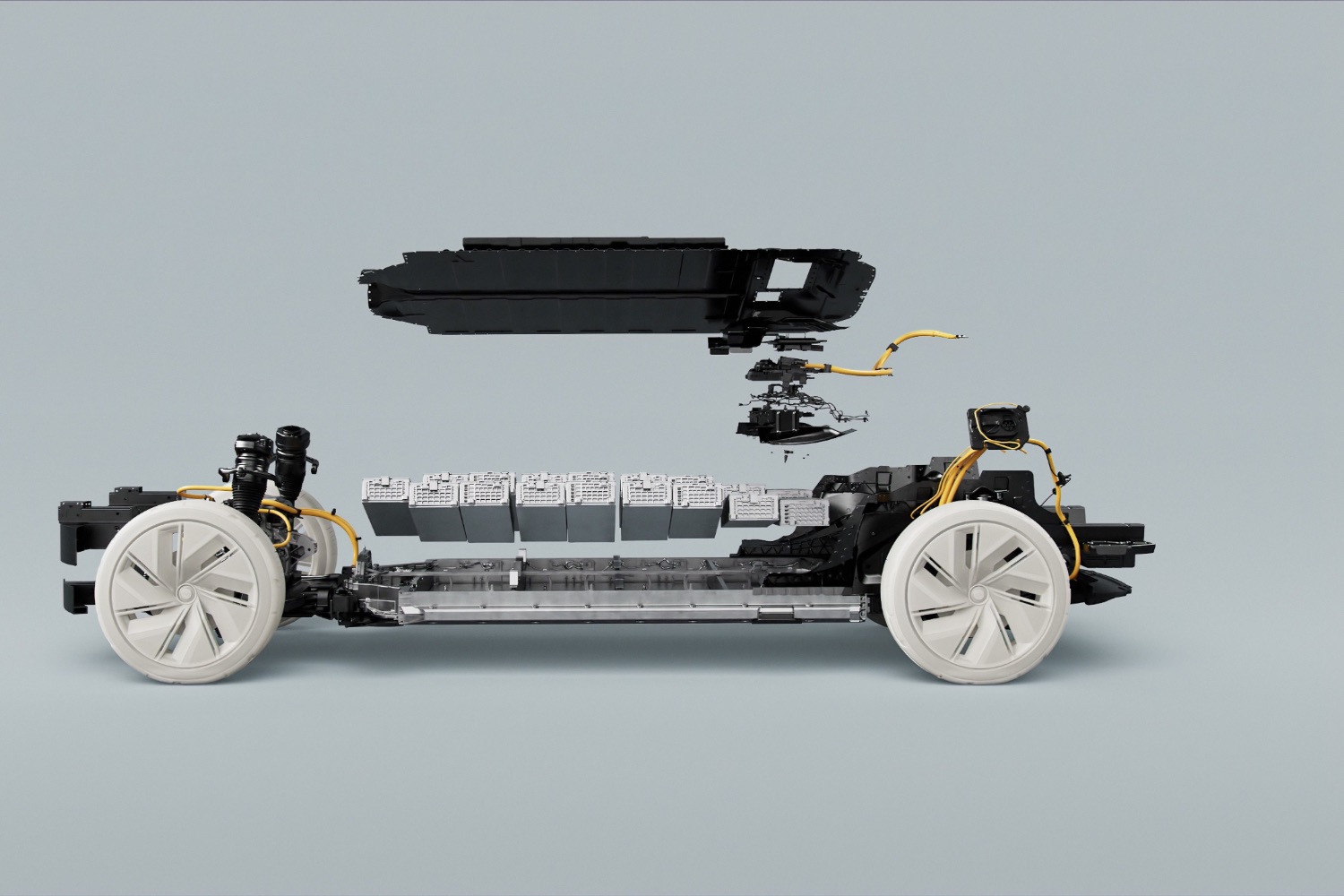
Q: One thing that's been dragged out in terms of negative coverage of EVs and PHEVs is the damage done to the environment in terms of mining. What's Volvo doing to ameliorate that?
A: Well typically 95 per cent of the materials in a battery can be recycled. So, the long-term story for batteries is okay, relatively speaking. You can't say that for petrol or for oil when it's drilled. We believe in the recycle approach to our production. So, if you take the EX30 and the level of recycled materials used in that car, we're quite comfortable that we're on a journey towards a more sustainable production economy. We aim to reduce our CO2 impact by 40 per cent by 2030. So, we're very genuinely looking at that whole story of sustainability.
Q: That's what Volvo can do as a big business, but what can Volvo Ireland do on a local level?
A: I think there's a lot of things we can do locally, such as this conversation, where we can provide people with factual information around what impact a battery has in its whole life.
We work with our retailers to try to drive that green agenda, too. So, we've introduced a new concept around our showrooms that is based around the green credentials - planting more plants around the buildings, simple things like that, introducing solar panels, looking at the technology in the workshops and how we can use fewer power-driven tools and so on.
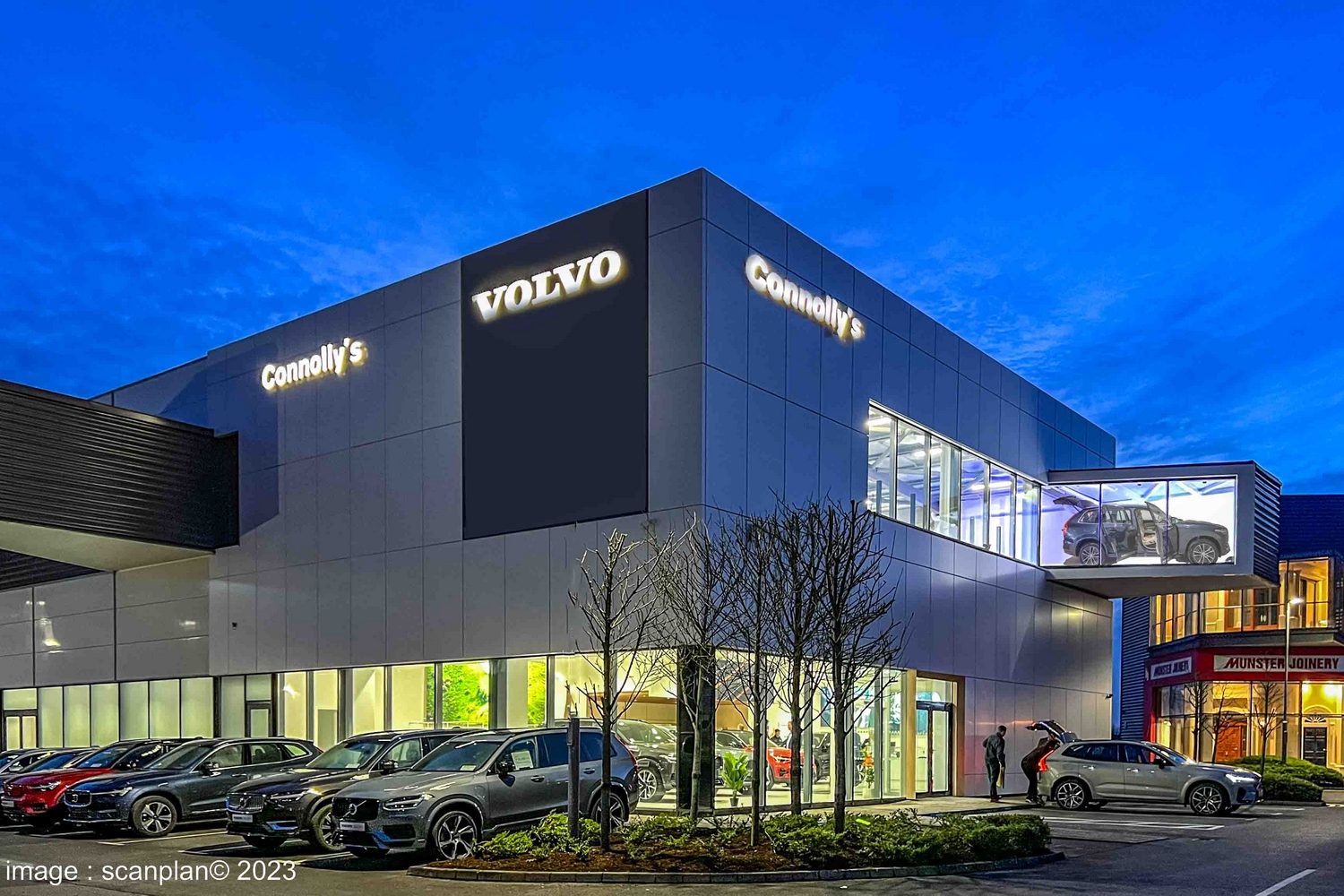
Q: Talking about the Volvo model range, we have the new EX30 that's been introduced as a smaller option, but is that as small as Volvo is likely to go? Will Volvo continue to be a premium brand?
A: Volvo is a premium brand for a whole lot of reasons. Yes, the EX30 is a smaller car but there are no plans to bring anything smaller than that into the market. It's about the right-sized car for the right consumer. And that's again about being green, about helping people make good decisions. Why drive a big SUV if you only need to drive one or two people in your family around with the occasional need for a backseat? I think the EX30 is premium in every facet of how it's developed - the materials, the driving experience, the consumer experience when you visit our retailers - all of that is very premium. So, you're still getting the benefit of a full premium experience, albeit in a much less expensive car.
Q: Touching on the retailers, is the current network the right size for Ireland? And because you mentioned the showroom concept, are there changes coming?
A: Over the years we've gone out with the concept of, knock down the showroom and build a new one that's going to be even better than the last one. What we've arrived to now, with the whole idea of sustainability and recycling, is a much more evolved process. Now we say "okay, is your furniture still of a standard that represents the brand correctly?" If it's not showing wear and tear, genuinely still fit for purpose, we don't ask the retailers to change it. That's the kind of approach we're now taking. In time, you'll see an evolution through our showrooms, but it will never be that complete knock down and rebuild. That's a great example of us living the words we speak.
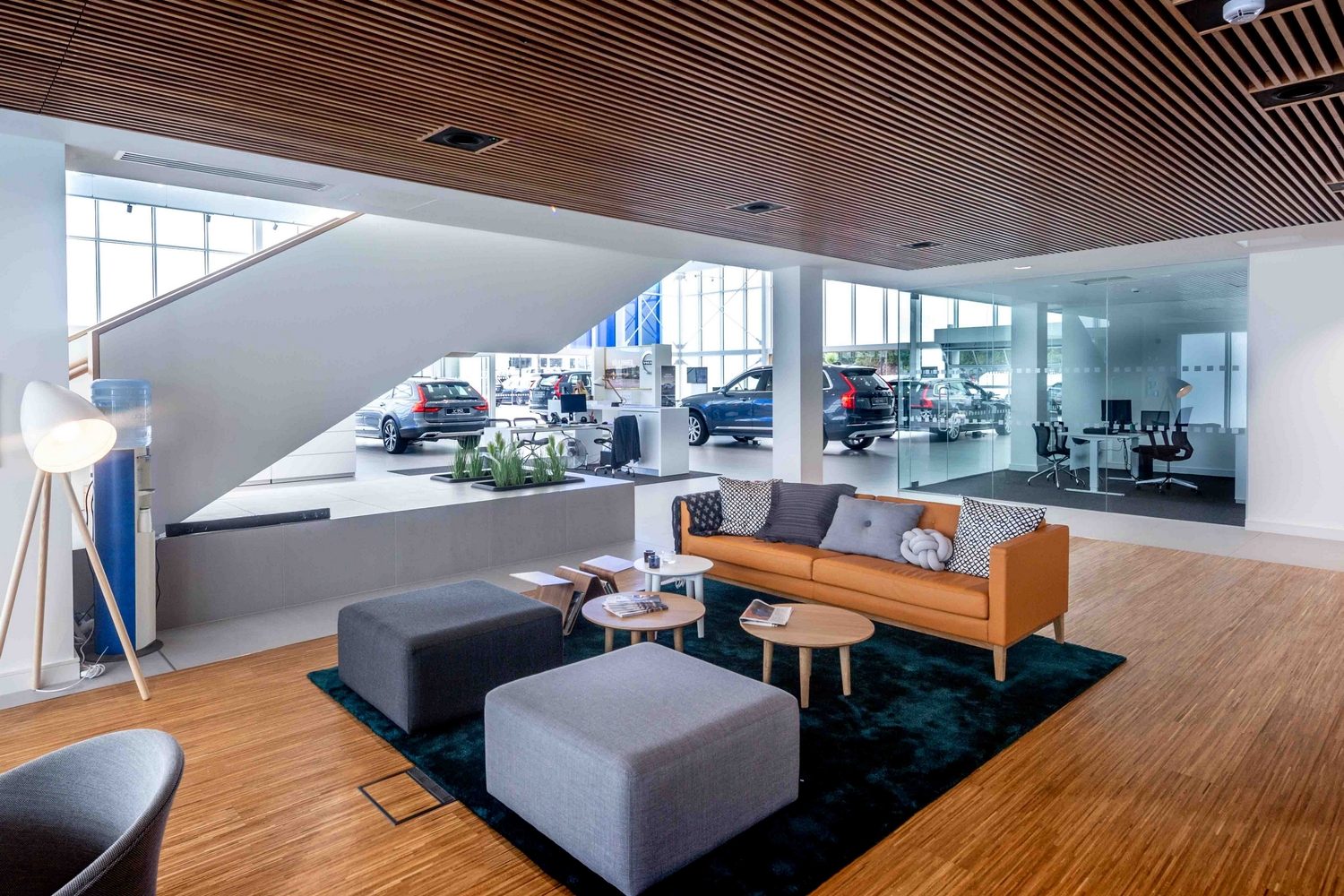
Q: Following on from that, does it make sense for Volvo to have some online selling presence?
A: We're very much of the omni-channel approach. What do consumers want? At the end of the day, all we are is a business trying to sell cars. What makes it easy for people to access our product? A lot of people go a long way through the purchase process online, doing their research, but ultimately there's a point where it's still a big decision and they want to touch and see the car in the metal.
It's probably the second biggest investment you're ever going to make, so at some point it's nice to sit down with a consultant and make the decision in terms of the appropriateness of a particular car for your lifestyle. You know, is battery right for me? Is PHEV, right? Or is it a petrol or diesel? They're the kind of answers that you get when you sit down with our sales consultants. It's very much a consultative process.
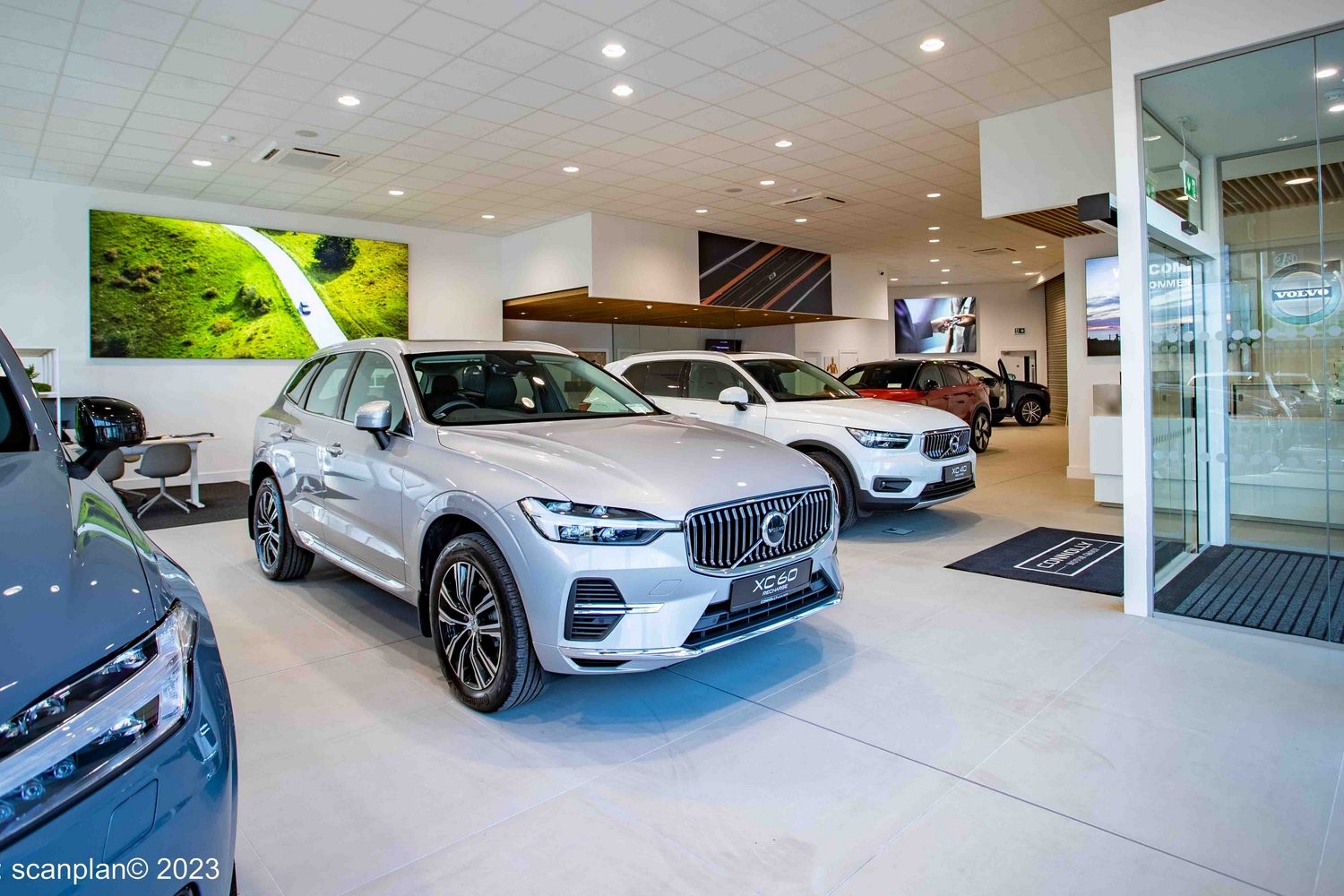
Q: The profile for car buyers in Ireland is a bit older just because they're the ones with the wealth. But do you think the EX30 is going to change that a little bit for Volvo?
A: We see the EX30 as a conquest car. We are quite excited about the prospect of winning new Volvo customers into the brand. We believe the EX30 will give us access to a whole new market. It's a price point we've never had before. When it was launched, we got a lot of feedback: "How did they get this price?", "That's a crazy price to launch that car". But it turned out to be an influencer in the market in terms of where everybody else suddenly realised they needed to get to.
I like to think Volvo had a significant contribution to the realignment of electric car pricing. I know many brands who spoke to me after we launched the price and said, "Jesus, you're putting the cat amongst the pigeons here", so I'm proud of that. Rather than realigning prices a year into production, we came out with the right price in the first place. I think we'll win a lot of new fans for the Volvo brand. That's exactly what we need to do.
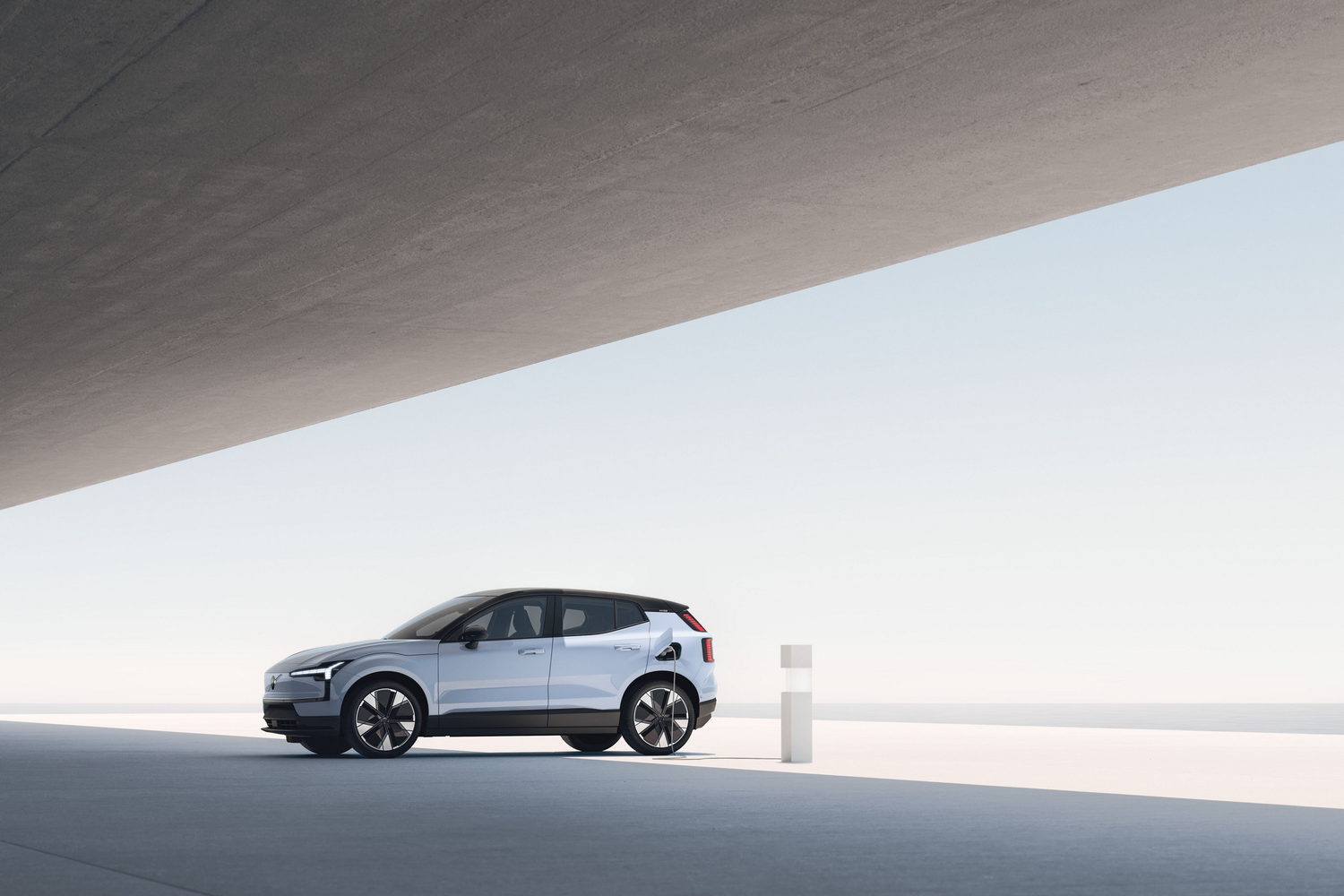
Q: How is the EX30 doing?
A: We didn't have cars on the ground until February to show to customers, and supply only kicked in in April and May. Knowing that the Irish market operates with 60 per cent of registrations in the first quarter, we missed some of that opportunity. So, for us, it's about next year. We'll have the July plate change of course and we've a great supply of cars coming through. But ultimately, it's about building up towards next year. And I think next year will be an outstanding year for us.
Q: It's more than just the EX30 for Volvo then?
A: The EX30 is going to be our market share builder, but the XC60 has been doing an outstanding job for us over the last number of years. It beats all the competitors [in its segment] and we're delighted with that. The XC90 is looking like it will finish the year as number one as well, and that's really exciting for a car that's been with us quite a few years. We have the EX90 coming in on top as well. That will provide an electric solution for those people looking for a seven-seat premium SUV. So actually, our offering builds over the next couple of months into next year.
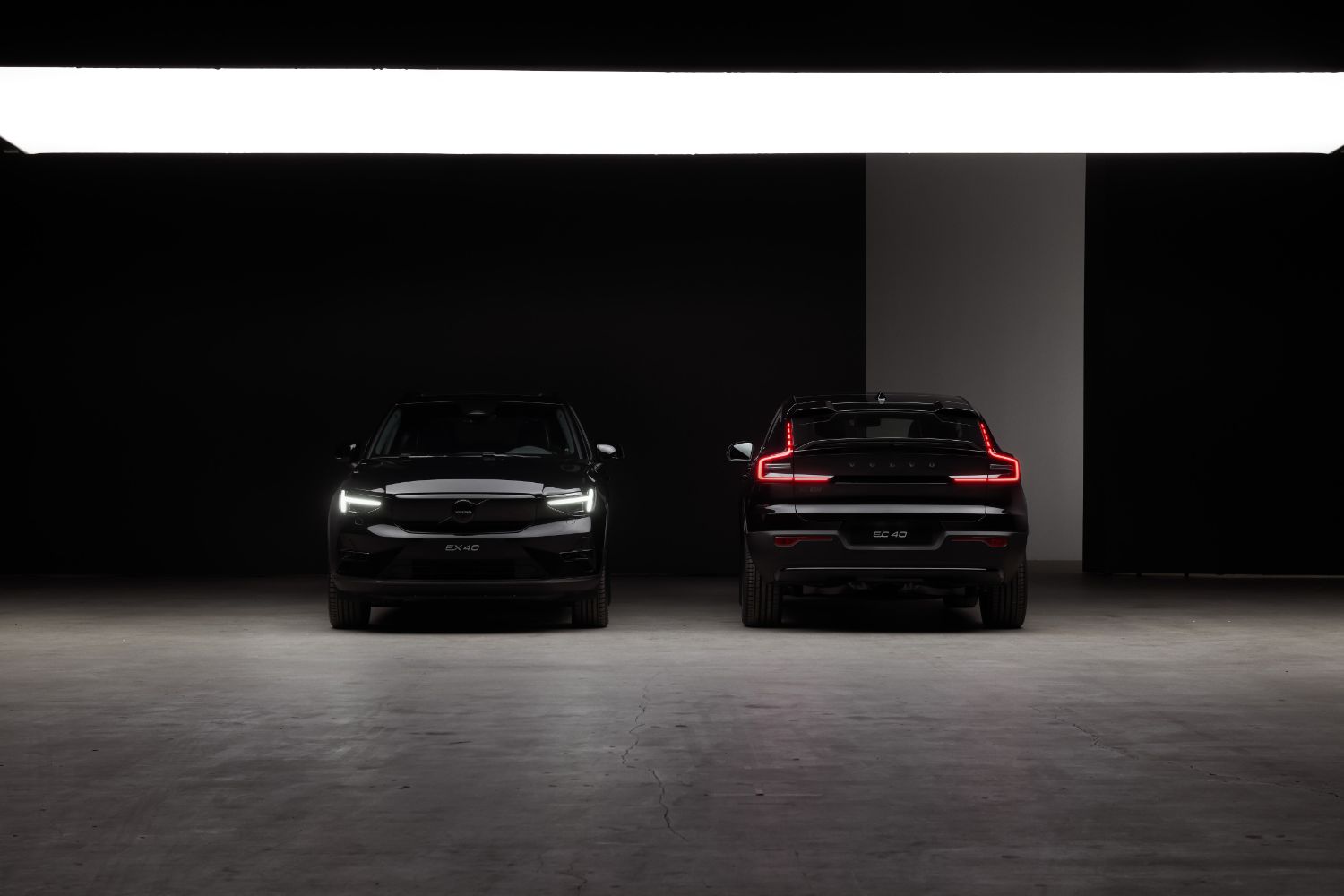
Q: There's also been the renaming of the C40 and XC40 - are they coming in for July time?
A: Yes, they are on the way. The new naming really answers the confusion that has been there. Everything electric starts with an E. It's much clearer.
Q: Moving away from SUVs, Volvo is known for its estates, but we've seen in the UK the estates and saloons have been dropped. What's happening here?
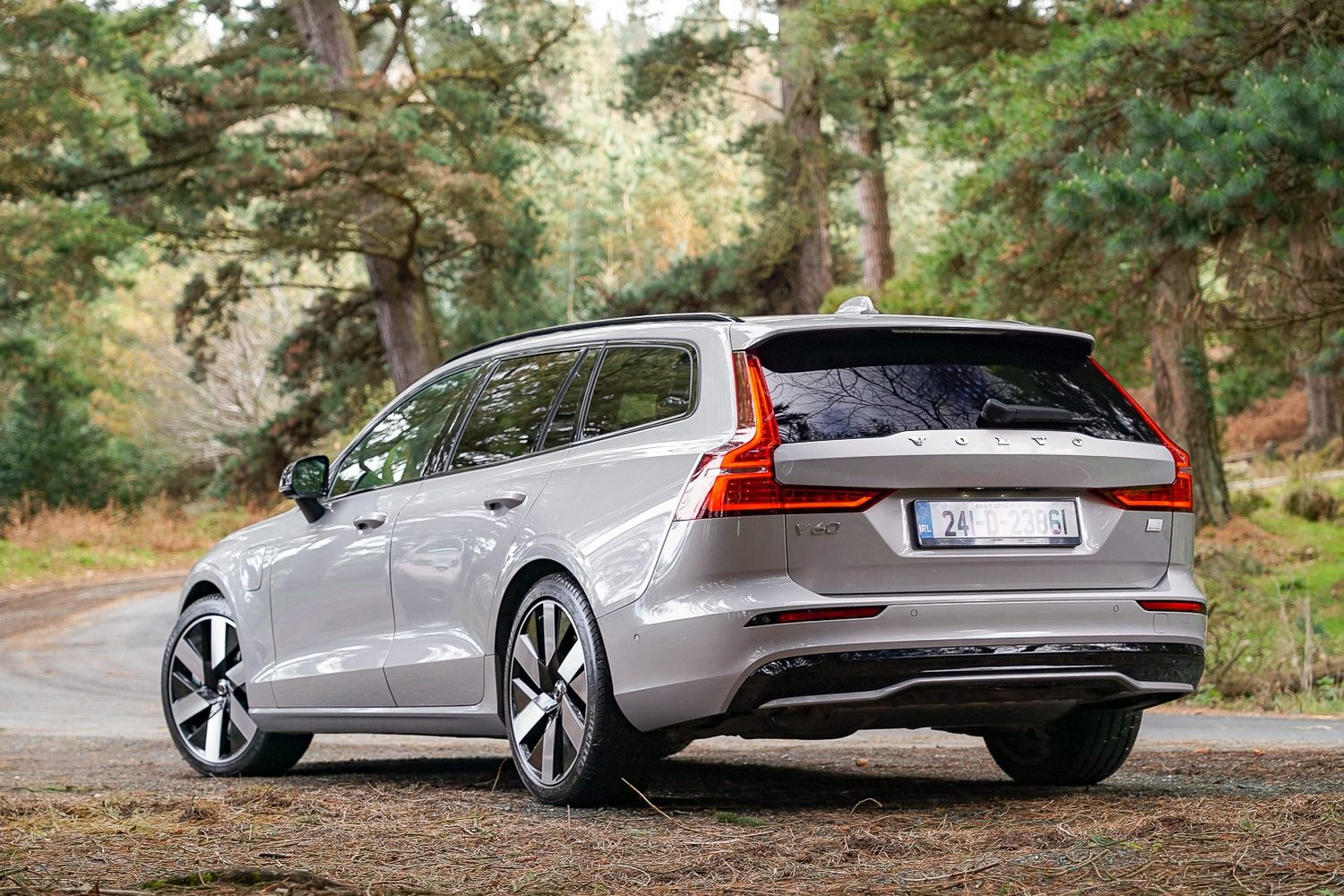
A: We haven't taken that approach, although we stopped just in the last month and took one more look at all the available cars. With the S60 and S90, these are built in China, and with the lead time that comes from that, we've chosen not to go with those. But the V60 is the car that we've chosen to stay with, so we'll continue with that for at least another couple of years.
I'm a firm believer in the V60. There's a lot of customers who don’t want to go into SUVs, but love the practicality of the longer boot, the wider boot, the bigger access with the full open door at the back. So, I think there's still a market for that car. It's not for everybody, but it's nice to have it as an alternative. And it's true to our heritage.
Q: Another newcomer from Volvo is the EM90 electric people carrier. Is there any place for that in Ireland?
A: In short, no. It's not a car built for this market, in truth. It's very much for the [Chinese] executive who Monday to Friday has a chauffeur, and then on the weekend drives the car themselves for family activities. There's not a mass market here for it yet; we might sell three, but the hassle of putting into right-hand drive really won't justify the investment. I don't see it happening, unfortunately.
Q: So where do you see the Irish car market heading in the next couple of years?
A: Five years ago, around 2019, the ratio between new car sales and imports were effectively one-to-one, but we're now at a point where for every 100 cars registered new, there's only 40 imports. Effectively there are a lot fewer cars available in the market, so in theory the new-car market should increase significantly, but that hasn't happened.
That's most peculiar, but I think the market will grow over the coming years. Our population is growing and the supply of young used cars from the UK has died away, so in theory our market should be growing in the coming years. But it won't happen until there's certainty around the choice of powertrains, and until people are confident in making the decision.
What we have is a lot of people standing back from the market, watching and observing. I understand that, but I think over the next year it'll be people starting to make decisions based on actual information. The industry is at an exciting point really, and I like to think we're on the right side of it. The PHEV story is very solid, but our EV story is very robust, so our future is extremely bright.
I think we'll gain market share, and we'll grow volume, and that's exactly where we want to be. It didn't happen this year, but that's okay, it's part of that normal transition. You have the early adopters, then there's a chasm that happens in any new technology. Then suddenly, the psyche of the consumer makes them realise, actually, this is the future. And that's where the mass market kicks in. I think we're only hours away from that.
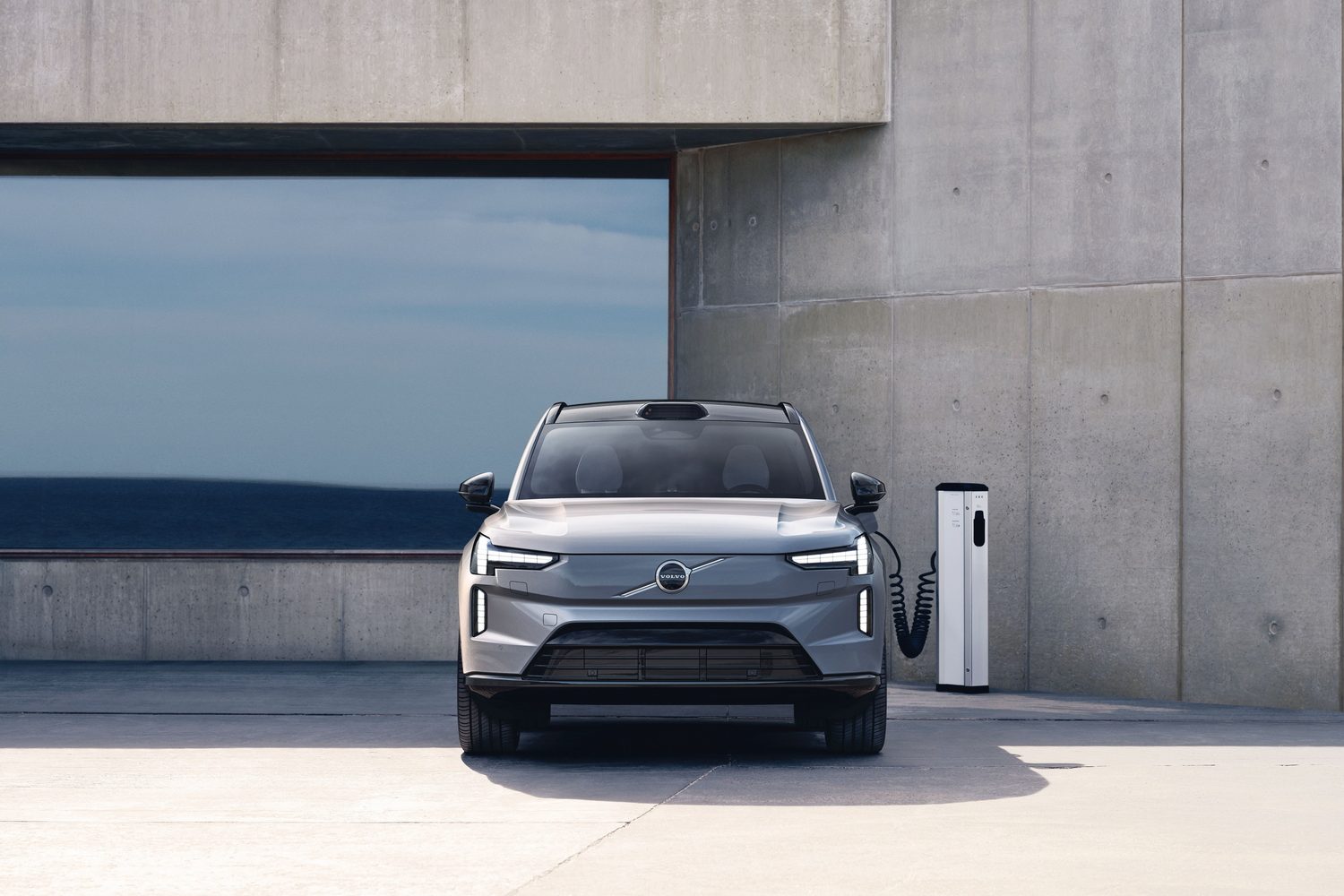
Q: So, do you think we're going to see a market change and the acceleration of take up of EVs and electrification?
A: A lot of people are driving cars that are older than they would traditionally drive right now. And they just want to be sure that they're going to make a good decision. That's good economics, to be fair to them. That's a better choice than choosing to change into a diesel or EV just because you don't quite know what to do and taking a punt.
I think it's something that changed in 2007/2008, where Irish people weren't savers, we weren't terribly disciplined about buying before we could afford. All that changed in 2008, and Irish people are much more European now, much more disciplined in making good decisions. I think that's good for everybody.
I look at Europe now. Norway is a great example. They're almost 100 per cent electric, but it took them 10, 15 years of pursuing this agenda. They're an oil-producing country, too, and yet they saw the advantage of moving to electric. For me, that's a glimpse into what can happen and what will happen. I look at the EX30 in Europe. It's the third best-selling car in the whole of Europe at the moment, both in February and March. That's exciting. So, the movement is starting to take shape. I think Ireland, because of our seasonality [of registrations] we can get back up to pace in October, November, December and January. I think next year is where normality kicks in again.

